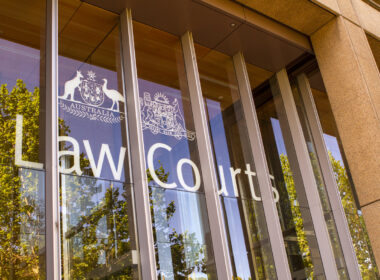An Australian-first study has revealed that victims of domestic and family violence are 10 times more likely than others to experience myriad legal problems such as family, civil and criminal law disputes.
These legal problems are often more severe than those experienced by the rest of the population and can cause long-term consequences such as illness, homelessness, loss of income and financial strain, say authors of a ground-breaking report called Quantifying the legal and broader life impacts of domestic and family violence, published by the NSW Law and Justice Foundation on Thursday.
The report publishes the findings of a national survey that randomly interviewed more than 20,000 Australians aged 15 and over, asking what (if any) legal problems they had encountered in the past 12 months. It is the largest representative population survey of its kind to date in Australia, with more than 2,000 interviews conducted in every state and more than 4,000 conducted in each of NSW and Victoria.
Interviewees who reported suffering domestic violence had faced, on average, 20 legal problems in the past year – compared to just two for the rest of the population. The odds that victims of domestic violence would encounter family law problems like custody battles, divorce, and disputes over assets were a dramatic 16 times higher than for non-victims. Victims were also at least three times more likely to experience civil disputes related to employment, financial, government payments, health, housing, personal injury and rights issues.
“We had anticipated that victims of domestic violence would be likely to experience more legal problems than the rest of the population, but the extent of their increased vulnerability to legal problems was quite startling,” said Christine Coumarelos, Senior Principal Researcher at the Law and Justice Foundation and author of the report.
President of the Law Society of NSW Elizabeth Espinosa said the report emphasised the need for a coordinated response between lawyers, social workers, police, government and community groups.
“Combatting domestic and family violence requires a complex and coordinated response across all jurisdictions and human service providers,” said Espinosa. “This paper supports the Law Society of NSW’s ongoing advocacy for outreach, awareness and the provision of specialist services that are appropriate to the needs of specific groups, that help prevent violence against women and children.”
The survey data comes amid an escalating media storm around violence against women, after a spate of high-profile killings that have left as many as 20 women dead in the past year. The most recent tragedy was the murder of Courtney Herron, whose body was discovered in Melbourne’s Royal Park last week. Herron was just 25 years old and is believed to have been suffering from mental health issues, drug addiction and homelessness.
“This study heightens our awareness of the broader legal and life impacts that domestic violence can have,” said Coumarelos. “Many victims we interviewed had been homeless in the past 12 months, many had physical or stress-related illnesses, some had lost their jobs or had financial struggles.”
The report found that women were four times as likely as men to suffer domestic violence. It also noted that disadvantaged groups such as Indigenous, disabled or unemployed Australians were “significantly more likely” to experience domestic or family violence.
NSW Attorney-General and Minister for the Prevention of Domestic Violence Mark Speakman said the survey results highlighted the need for umbrella services such as the Safer Pathway program, first piloted in 2014 and introduced at 19 sites across NSW in 2016.
“Safer Pathway brings multiple human and legal services together in a one-stop shop so victims have consistent access to coordinated support systems that suit their specific individual needs,” said Speakman.
“We’re also investing record amounts in community legal centres that address critical gaps in available services, which means more domestic violence victims will get the free legal help they need.”
In May, Speakman announced $40 million in funding for the state’s community legal sector over the next three years. This represents an increase of 85 per cent in the annual rate since 2015-16. The Morrison Government has also earmarked $328 million to address domestic and family violence in the 2019 budget, as part of the National Plan to Reduce Violence Against Women and their Children.
Research by KPMG has estimated that the broader impacts of domestic and family violence cost the Australian economy as much as $22 billion per year.

If you or someone you know is impacted by sexual assault, family or domestic violence, call 1800RESPECT on 1800 737 732 or visit www.1800RESPECT.org.au. In an emergency, call 000.




